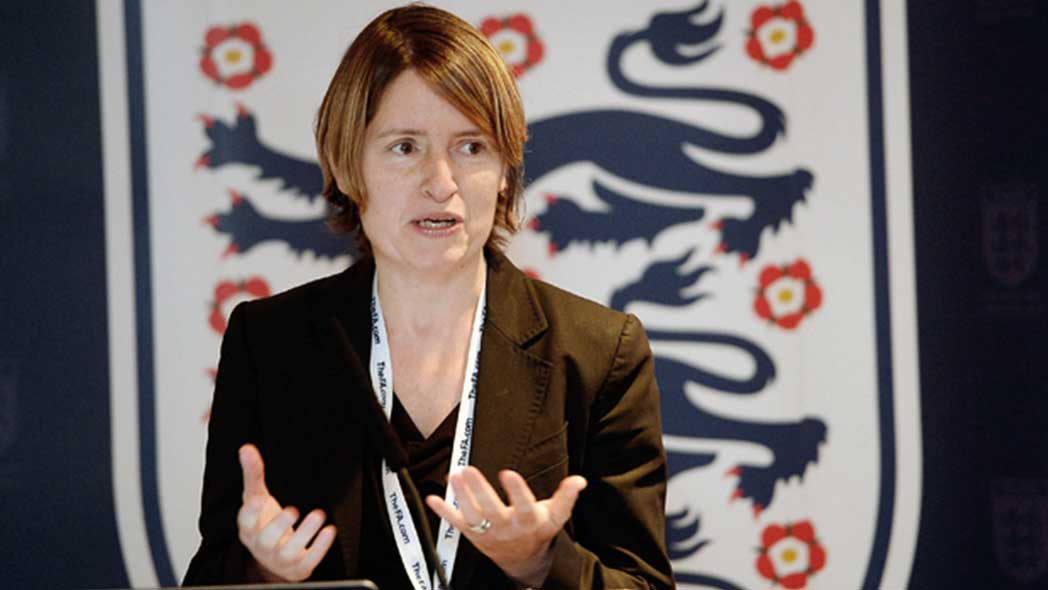The FA’s Director of Women’s Football, Kelly Simmons, says changing or removing the current salary cap in place in the FA Women’s Super League hasn’t been reviewed ahead of the new season kicking off next weekend.
Currently, clubs can spend up to 40 percent of their turnover on wages, leaving the other 60 percent earmarked for facilities and marketing, among other areas.
The current cap ensures England’s top clubs can’t compete with the likes of Olympique Lyon and FC Barcelona when it comes to paying players, but Steph Houghton recently said she wasn’t concerned about the number of top English players heading abroad after Nikita Parris and Alex Greenwood followed Lucy Bronze and Izzy Christiansen to the European champions.
Toni Duggan decided to join Atlético Madrid from Barcelona after leaving the Catalan side rather than return to England, but Simmons says the clubs haven’t raised the cap as a priority ahead of the new domestic campaign.
“When I went around the clubs, I said to them these are the things we need to focus on and nobody pushed to review the salary cap,” said Simmons. “We’ve had a hard cap, a soft cap, it’s 40 percent of turnover now, but nobody said to me, ‘We’d invest more but we can’t because of the cap.’
“We need to invest outside the players, too. We need stadiums, we need marketing plans, when you add all that up to meet the license criteria, it doesn’t seem to be putting people off. If they think it’s holding them back, we can talk about it, but we want clubs to invest on and off the pitch so it’s driving a more balanced investment.”
Manchester United manager Casey Stoney has become the most recent person to find out what it’s like to lose a player to Lyon, with club captain Greenwood moving to the dominant French side earlier this month.
Stoney says she also has no issue with the salary cap and thinks it helps maintain a more competitive league, but didn’t echo Houghton’s thoughts when asked if there is now a greater concern of losing players more regularly to clubs like Lyon.
“There is, but they [Lyon] pay the most money,” said Stoney. “That’s fact, they pay the most money and, you know, are we in a place where we can compete with Lyon financially? No, we’re not, because we’re in year two and we want to do it the right way. We want people to be here for the right reasons. I think players come here and have a great opportunity to grow in many ways.
“I can’t deny someone the opportunity to go there, compete for the Champions League in the first season. We can’t do that. We can’t play in the Champions League this year, so we can’t offer you that and we can’t compete with the rumored salaries that they pay. Do I think we should be? No, because the women’s game is not there yet.”
Echoing Simmons’ thoughts of striking a balance between not just paying players a respectable wage, the United boss said clubs need to work on becoming more sustainable and filling their stadiums before worrying about paying players more money.
Bringing up comparisons to the United States, which saw two professional leagues fail before the National Women’s Soccer League due to financial issues, Stoney said a salary cap will continue to keep the league competitive.
“The women’s game is not in a place where we should be paying those sort of figures to players, in my opinion, until we start getting more people in the ground. We want to aim towards sustainability, then we have to have some kind of wage structure. Otherwise, you’re just throwing money at it and then where is it in five, six, seven years? Are we America again and we collapse twice because we’ve overpaid? We don’t want to be in that position so I think we have to be quite careful about that.
“My thing is, it’s alright me sitting here as head coach of Man United and saying everyone’s okay, but look at what’s happened to Yeovil and Notts County. We’re still in a place where teams collapse because of the financial strain on them.”
Stoney added, “So for me, if you want a more competitive league, and you want a level playing field, then a wage cap for me, I don’t see a problem with it, as long as it is reasonable. I don’t think you need to go too low or too high. Players can afford to live on the wages that they get paid now. Obviously, once we get more money coming in from commercial partners and from attendances then we can look at where the game is then and increase it.”

